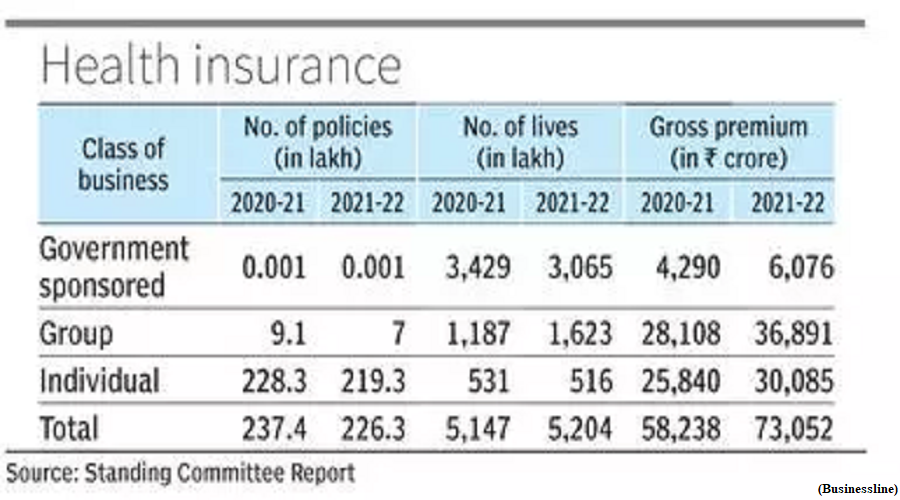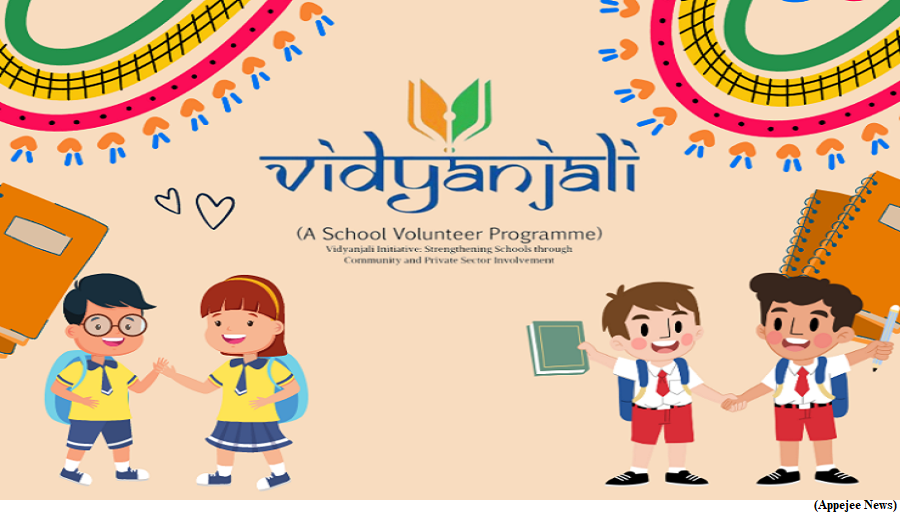Panel pitches for lowering of GST on health policies (GS Paper 3, Economy)

Why in news?
- The Parliamentary Standing Committee on Finance has recommended that GST on health insurance, particularly for senior citizens, should be lowered.
- It has simultaneously pitched for a level-playing field between public and private sector insurance firms in terms of TDS on GST and participation in government-run insurance schemes.
High premium burden:
- Financial services, including premium for health insurance, term insurance plans and unit-linked insurance plans, attract GST at 18%. On endowment plans, GST is applied differently. While it is 4.5% for premium paid during the first year, 2.25% would be the rate from the second year.
- For life insurance in the form of single-premium annuity policies, rate of GST is 1.8%. Rates are the same for all age groups. These can be reviewed on the recommendation of the GST Council.
Key Highlights:
- The Standing Committee, chaired by BJP MP Jayant Sinha, underscored the need for rationalising the GST rate on insurance products, especially health and term insurance, which is 18% at present.
- The high rate of GST results in a high premium burden which acts as a deterrent to getting insurance policies.
- It said the GST rates applicable to health insurance products, particularly retail policies for senior citizens and micro-insurance policies (up to limits prescribed under PMJAY or Pradhan Mantri Jan Aarogya Yojana, presently ₹5 lakh) and term polices may be reduced.
TDS on GST:
- The Committee also took note of TDS (Tax Deducted at Sources) on GST that applies only to public sector insurance companies.
- According to CGST ACT, TDS at the rate of 2% is required to be deducted from the payment made or credited to the supplier of taxable goods or services or both, where the total value of such supply is more than ₹2.50 lakh.
- This is applicable to entities mentioned in Section 51 of CGST Act and includes public sector undertaking (PSU) insurers.
Mandatory participation:
- Apart from this, the Committee also noted that the public sector insurance companies have to mandatorily participate in government-run insurance schemes that which impact profitability.
- The Committee, with a view to ensuring ensure a level-playing field, recommends that such provisions be uniformly applied to all players.
Vehicle Insurance:
- Relying on data from Motor Annual Report of the Insurance Information Bureau of India, the Committee observed that almost 56% of vehicles (mainly commercial) plying on the roads are unsecured. Such a trend poses a risk to the owners and third parties in case of accidents or damages.
- Accordingly, the Committee recommended implementation of E-Challan enforcement across States by leveraging data integration by IIN, mParivahan and National Information Centre data.
- It also suggested that financial institutions consider providing loans when they have proof of insurance coverage.
EdCIL Vidyanjali Scholarship Programme
(GS Paper 2, Education)
Why in news?
- The Union Minister of Education and Skill Development & Entrepreneurship recently launched the EdCIL Vidyanjali Scholarship Programme.

Key Highlights:
- The EdCIL Vidyanjali Scholarship Programme, in alignment with the National Education Policy 2020, is a powerful force aimed at revolutionizing opportunities for quality education and access to higher education institutions.
- Going beyond mere enrolment, this initiative guarantees access to high-quality learning systems by facilitating a seamless transition from secondary to higher education and extending financial support for the meritorious Navodaya Vidyalaya students who lack means.
- In addition to extending financial assistance to economically marginalised and meritorious students of Navodaya Vidyalayas, this endeavour by the Government of India also encourages involvement from the private sector through Corporate Social Responsibility (CSR) initiatives, thereby making way of joining forces between the Government and corporates towards an educated India, ensuring no child is left behind.
Way Forward:
- The Vidyanjali Scholarship Program symbolises a whole-of-society approach to empowerment through access and opportunities of education, particularly to students belonging to economically disadvantaged sections.



